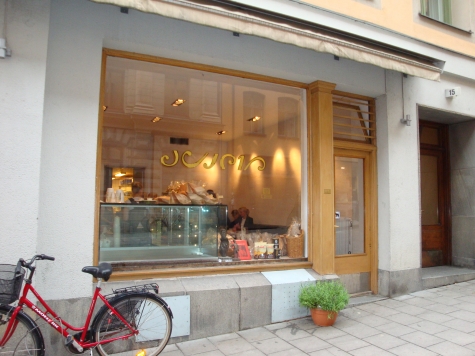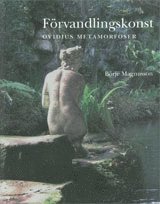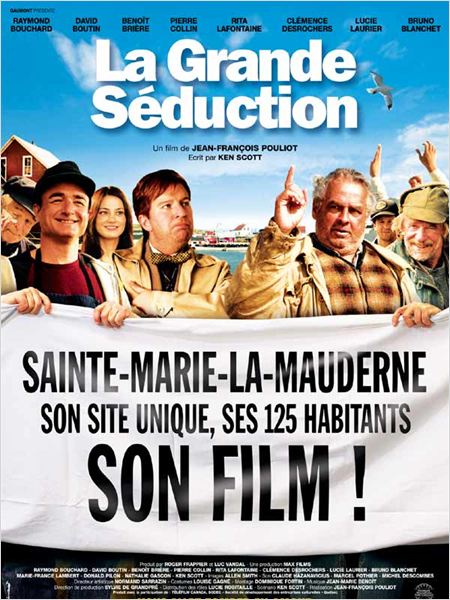Aurore är upptagen med annat idag så jag ger mig iväg till
ABF-huset för att lyssna på ett föredrag av Palmepristagaren
Mosaad Mohamed Ali i samtal med författaren och förre förläggaren
Svante Weyler.
Mosaad är jurist och koordinator för
'The Amel centre for the Treatment and Rehabilitation of Victims of Torture in South Darfur', en organisation som förmedlar rättshjälp, medicinsk och psyko-social assistans till offer för tortyr och sexuellt våld samt till dem som riskerar grym, omänsklig och förnedrande behandling inklusive dödsstraff och amputationer.
Mosaad's engagemang har, enligt informationsbladet, gällt hundratusentals krigsdrabbade i de läger som omger
Nyala sedan kriget eskalerade.
Denne man har under mer än tio år varit en frispråkig och modig kritiker av brott mot de mänskliga rättigheterna i
Darfur och
Sudan som helhet.
För detta arbete har han nu hedrats med den ovan nämnda utmärkelsen (bland kanske flera?).
Han inleder sitt föredrag med att säga att konflikten tog sin början redan i och med torkan i mitten av 80-talet då nomaderna flyttade till områden där bönder och människor med fasta boförhållanden levde sina liv.
Nomaderna organiserade sig i klaner mot byborna/bönderna och detta resulterade i successivt upptrappade konflikter dessa emellan.
Organisationen Mosaad har upprättat kontor i de stora flyktinglägren och via dessa erbjuder man rättshjälp till de drabbade människorna men vissa personer besöker även Nyala där man har sitt huvudkontor.
Organisationen är finansierad av bl.a
UNDP.
Många inom organisationen har arresterats och även avrättats då denna typ av arbete inte välkomnas av någondera stridande part i konflikten.
Intressant att höra denne man tala och jag ställde honom en fråga om hur han som jurist och sudanes boende i detta konfliktfyllda land, reagerade på att F.N. i samband med diskussioner om en intervention först ansåg sig tvungna avgöra huruvida detta var att betrakta som ett folkmord eller ej.
Mosaad replikerade att han inte ansåg att frågan om huruvida det som pågick i Darfur var att beteckna som ett folkmord eller ej borde ha varit avgörande för Förenta Nationernas agerande.
I likhet med mig och många andra ansåg han detta var en pseudodiskussion som inte gagnade de lidande människorna i Sudan/Darfur.
Personligen reagerade jag och många med mig med upprördhet - för att uttrycka mig milt - över, vad jag vill kalla, F.N:s advokatyr.
Efter detta begav jag mig till Filmhuset och därefter mötte jag Aurore för att tillsammans med henne besöka
Finlandsinstitutet för en utställning med den förra året avlidne formgivaren
Timo Sarpanen; 'Sarpanen in memoriam' som utställningen hette.
I många stycken påminde vissa av hans glaskonstverk om
Alvar Aalto och de hade båda verkat vid Iittala glasbruk men inte i övrigt haft så många kontakter om jag förstod det rätt.
Hem och middag på kvällen.
English:Aurore is engaged in other issues today and I therefore head towards the so called
'ABF-huset' ('ABF-house'), the Labour Movements organization for studies and lectures among other things.
I go there in order to listen to a lecture by the Olof Palme prize winner
Mosaad Mohamed Ali talking to journalist and former Swedish publisher Svante Weyler
.
Mosaad is a lawyer and coordinator för
'The Amel Centre for the Treatment and Rehabilitation of Victims of Torture in South Darfur', an organization that mediate legal aid, medical and psycho-social assistance to victims of torture and sexual violence and also to those who risk cruel, inhuman and degrading treatment including death penalty and amputations.
Mossad's engagement has, according to the information given, concerned hundreds of thousands of people struck by war in the camps surronding
Nyala since the war escalated.
This man has for more than ten years been a outspoken and courageous critic of crimes against human rights in
Darfur and
Sudan as a whole.
For this work he has now been awarded the Olof Palme-prize (among others?).
He open his lecture by saying that the conflict started already in connection with the drought in the mid 1980's when the nomads moved to areas where farmers and resident people lived.
The nomads organized themselves in clans against the villagers and farmers and this resulted in gradually intensified conflicts between this groups.
The organization he represents have established offices in the refugee camps where they offer legal assistance to the victims but some people also visit Nyala where the main office is situated.
The organization is financed by
UNDP among others.
Many representatives of this organization have been arrested and even executed as this work is not welcomed by neither part in this conflict.
It was really interesting to hear Mosaad give his view on this serious issue.
I asked him a question regarding how he as a lawyer and Sudanese living in this land filled of serious conflicts reacted when the U.N. discussed wether this conflict where to be regarded as a genocide or not.
This in order to decide if the U.N. should intervene in the conflict.
Mosaad replied that he regarded the 'genocide-question' being something that should have been irrelevant for the U.N. decision concerning an intervention or not.
They should have acted more decisive regardless the answer to this question.
Like myself and many others he looked upon this as a pseudo discussion not benefiting the suffering people of Sudan/Darfur.
After this I went to The Swedish Film Institute and when finished there I met Aurore and together we visited the
Finland Institute for an exhibition with the Finnish glass designer
Timo Sarpanen who died last year; 'Timo Sarpanen in memoriam'.
To some extent he reminded in some of his works about
Alvar Aalto and they both have worked at Iittala but not at the same time and with few contacts between them if I understood correctly.
Home and dinner!




















